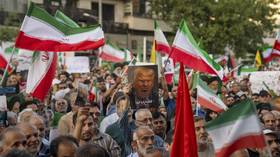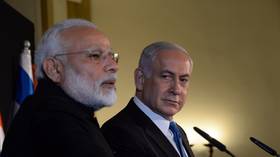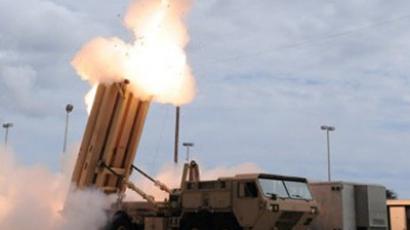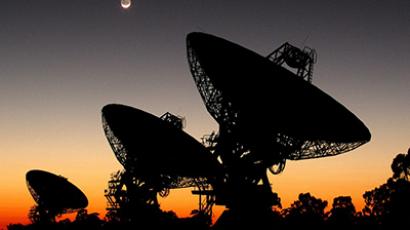Building missile shield: unclear threat, unknown cost
NATO plans for a phased deployment of a European anti-missile defense system are moving forward, with Turkey and Romania having signed deals to host crucial elements of the system.
The US and Turkey signed a memorandum on Wednesday on the deployment of an American radar station in the east of the country as part of the NATO-backed missile defense system (AMD).The AN/TPY-2 THAAD radar will be deployed in the southeastern Turkish province of Malatya by the end of the year. It will later become part of the anti-ballistic missile system which the US and NATO are building to protect Europe, pposedly from missile attacks by rogue states.The news comes just a day after Romania agreed to a deal with Washington under which land-based SM3 interceptor missiles and over 100 military personnel will be based on Romanian soil. The deal also includes the deployment of American Navy cruisers with naval versions of the interceptors along the Romanian coast.The project has caused concern in Russia, which believes the system may be targeted against its nuclear deterrence capabilities. Washington refused to build a joint Russian-NATO anti-missile system to protect Russia, as suggested by Moscow.Apart from the potential to tip the strategic military balance, the AMD system may prove costly once you count in the maintenance, argued Ludo de Brabander, spokesman for the Belgium peace movement Verde.“The US and NATO are arguing that this is small cost for big advantage,” he told RT. “It is estimated that this project will last 10 years and cost 200 million euros shared by all 28 NATO countries. So it seems little investment for each country. But maintaining this kind of system could cost much more. So it will not be easy to sell this project to the public.”
'US is reintroducing the Cold War'
Bruce Gagnon from Global Network against Weapons and Nuclear Power in Space says the plan has nothing to do with threats from Iran or North Korea.“It is all about surrounding Russia and China today, and these systems are part of a larger US first-strike attack systems underway,” he told RT. “The United States is reintroducing the Cold War, both with Russia and China. The obvious response that we see from Russia and China – they’ve asked for negotiations, they’ve gone to the United Nations for many years seeking a ban on all weapons in space – the United States, through Democrat and Republican administrations, has ignored that offer to negotiate. So sadly, what we are seeing now is Russia and China having to take counter measures to deal with these growing US missile defense deployments surrounding their borders.”
Mark Avrum Gubrud, an assistant professor at the University of North Carolina, believes Washington is pursuing goals other than ensuring security.“The real purpose of this move is political,” he told RT. “The AMD is being used as a tool of diplomacy and as a tool of domestic politics. I don’t think the high officials in the Obama administration believe the system really has great effectiveness as a defense against a potential threat that does not even exist.”













